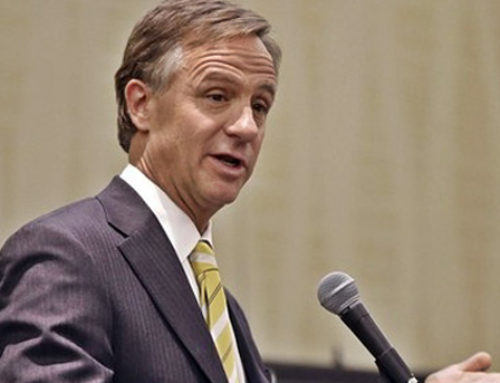The need for transparency with teeth: A lesson from Chris Christie
We in Tennessee can learn something from the New Jersey bridge scandal that put Gov. Chris Christie who championed “transparency” now staring down accusations of violating the state’s public records laws and otherwise working effectively to keep secret some legitimate information citizens deserve to know.
The transparency movement is a good one. And there are great examples of local governments posting all levels of information for citizens, some of it quite useful such as agenda packets for upcoming meetings and financial information that allows citizens to better understand how their local government operates.
It should continue and, in Tennessee, some guidance is provided in a recent report by the Tennessee Advisory Commission on Intergovernmental Relations. The report examined local and state government websites as it relates to proactively posting public information, and what it would take to post more. (You can read a previous blog post about the report here.)
It was prompted by two bills filed in 2012 by state Sen. Bill Ketron of Murfreesboro and state Rep. Joe Carr of Lascassas which called for specific financial information (check-book level spending, for example) to be posted on state and local government websites.
The bills were American Legislative Exchange Council models, which primarily puts out state-level legislation proposals from a conservative bent.
One of the most astute suggestions from the study , I believe, was creating a broad-based state-level stakeholder task force to come up with standards and ask the question – what do citizens really want?
Why is a citizen task force important?
Because as we see from the Christie example, too easily transparency initiatives can be skin deep.
Christie implemented a broad transparency initiative when he was elected – requiring all kinds of state information to be posted online. Now the culture of secrecy within his administration is becoming a story on the national stage.
If you’re interested in hearing about the hand-to-hand combat to get public records, listen to a radio piece by Matt Katz of New Jersey Public Radio on “Chris Christie’s 18 State Secrets.”
We should encourage our local and state governments to be more transparent and post more information on their websites – particularly useful stuff like agenda packets that include all the attachments and information about expenditures.
But transparency initiatives need to be done as part of a wider cultural movement that champions open government.
And that means making sure our open records and open meetings laws are strong, that citizens know them and they are followed.
“Sunlight is said to be the best of disinfectants,” is an oft-repeated quote from Supreme Court Justice Louis D. Brandeis. Here’s the rest of the quote: “electric light the most efficient policeman.”
Deborah Fisher is executive director of Tennessee Coalition for Open Government, an alliance of media, citizen and good government groups that through research and education seek to preserve and promote transparency in government in Tennessee. She can be reached at [email protected].

